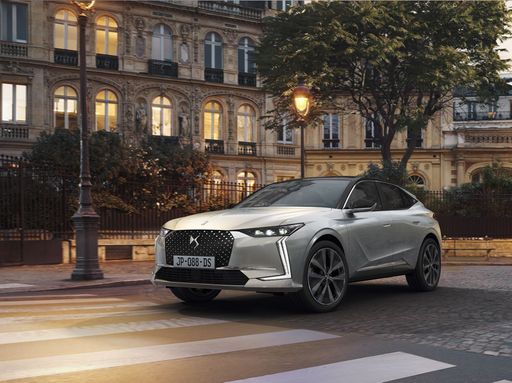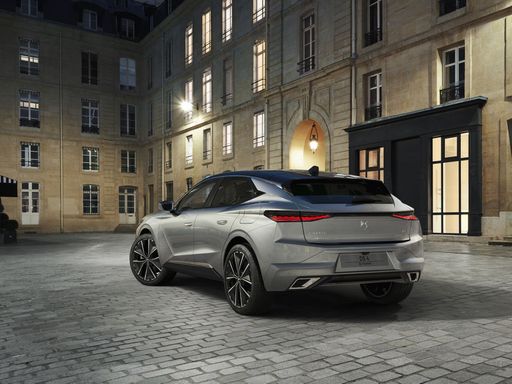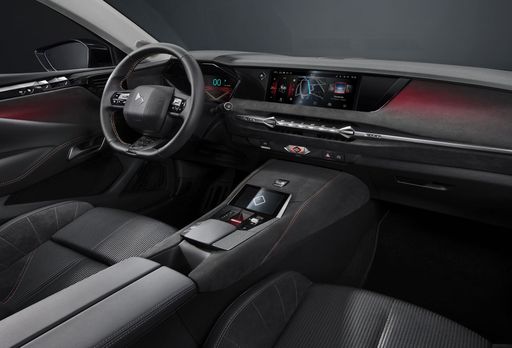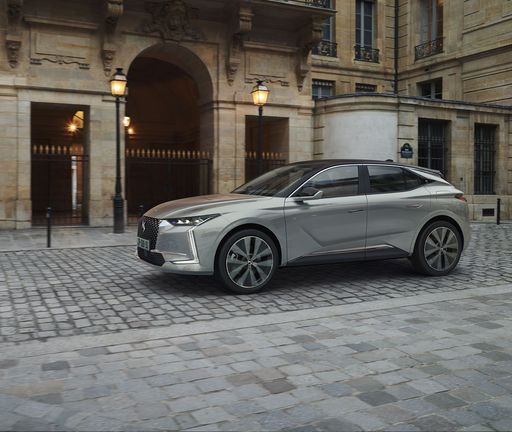DS Automobiles DS 4 vs Hyundai Kona – Differences & prices compared
Costs and Efficiency:
Price and efficiency are key factors when choosing a car – and this is often where the real differences emerge.
Hyundai Kona has a decisively advantage in terms of price – it starts at 23100 £, while the DS Automobiles DS 4 costs 34000 £. That’s a price difference of around 10920 £.
Fuel consumption also shows a difference: Hyundai Kona manages with 4.60 L and is therefore somewhat more efficient than the DS Automobiles DS 4 with 5.20 L. The difference is about 0.60 L per 100 km.
Engine and Performance:
Power, torque and acceleration are the classic benchmarks for car enthusiasts – and here, some clear differences start to show.
When it comes to engine power, the Hyundai Kona has a significantly edge – offering 218 HP compared to 130 HP. That’s roughly 88 HP more horsepower.
In acceleration from 0 to 100 km/h, the Hyundai Kona is evident quicker – completing the sprint in 7.80 s, while the DS Automobiles DS 4 takes 10.90 s. That’s about 3.10 s faster.
In terms of top speed, the Hyundai Kona performs minimal better – reaching 210 km/h, while the DS Automobiles DS 4 tops out at 203 km/h. The difference is around 7 km/h.
There’s also a difference in torque: DS Automobiles DS 4 pulls slightly stronger with 300 Nm compared to 265 Nm. That’s about 35 Nm difference.
Space and Everyday Use:
Cabin size, boot volume and payload all play a role in everyday practicality. Here, comfort and flexibility make the difference.
Both vehicles offer seating for 5 people.
In curb weight, Hyundai Kona is slightly lighter – 1370 kg compared to 1558 kg. The difference is around 188 kg.
In terms of boot space, the Hyundai Kona offers minimal more room – 466 L compared to 430 L. That’s a difference of about 36 L.
In maximum load capacity, the Hyundai Kona performs barely noticeable better – up to 1300 L, which is about 60 L more than the DS Automobiles DS 4.
When it comes to payload, Hyundai Kona slight takes the win – 490 kg compared to 442 kg. That’s a difference of about 48 kg.
Who comes out on top?
Overall, the Hyundai Kona shows itself to be outperforms in nearly all aspects and secures the title of DriveDuel Champion.
It convinces with the more balanced overall package and proves to be the more versatile choice for everyday use.
Costs and Consumption
View detailed analysis
Engine and Performance
View detailed analysis
Dimensions and Body
View detailed analysis
 @ Hyundai Motor Company
@ Hyundai Motor Company
Hyundai Kona
DS Automobiles DS 4
The DS 4 is a striking compact that wears couture-inspired styling like a tailored suit, and its cabin feels more boutique hotel than ordinary hatchback with premium materials and clever detailing. On the road it mixes poise with comfort, rewarding drivers who want a refined, characterful alternative to the usual suspects — and enjoy the odd admiring glance at the lights.
details @ DS Automobiles / Stellantis Media
@ DS Automobiles / Stellantis Media
 @ DS Automobiles / Stellantis Media
@ DS Automobiles / Stellantis Media
 @ DS Automobiles / Stellantis Media
@ DS Automobiles / Stellantis Media
 @ DS Automobiles / Stellantis Media
@ DS Automobiles / Stellantis Media
Hyundai Kona
The Hyundai Kona wears its personality on the outside with bold styling and sprightly handling that turns city driving into something a little more fun than a commute. It blends practical space, modern tech and sensible running costs into a compact, stylish package — a smart pick if you want flair without paying luxury prices.
details @ Hyundai Motor Company
@ Hyundai Motor Company
 @ Hyundai Motor Company
@ Hyundai Motor Company
 @ Hyundai Motor Company
@ Hyundai Motor Company
 @ Hyundai Motor Company
@ Hyundai Motor Company
 @ DS Automobiles / Stellantis Media
@ DS Automobiles / Stellantis Media
|
 @ Hyundai Motor Company
@ Hyundai Motor Company
|
|
|
|
Costs and Consumption |
|
|---|---|
|
Price
34000 - 41700 £
|
Price
23100 - 41600 £
|
|
Consumption L/100km
5.20 L
|
Consumption L/100km
4.6 - 7 L
|
|
Consumption kWh/100km
-
|
Consumption kWh/100km
14.6 - 16.8 kWh
|
|
Electric Range
-
|
Electric Range
377 - 514 km
|
|
Battery Capacity
-
|
Battery Capacity
1.3 - 65.4 kWh
|
|
co2
137 g/km
|
co2
0 - 163 g/km
|
|
Fuel tank capacity
53 L
|
Fuel tank capacity
38 - 47 L
|
Dimensions and Body |
|
|---|---|
|
Body Type
Hatchback
|
Body Type
SUV
|
|
Seats
5
|
Seats
5
|
|
Doors
5
|
Doors
5
|
|
Curb weight
1558 kg
|
Curb weight
1370 - 1773 kg
|
|
Trunk capacity
430 L
|
Trunk capacity
466 L
|
|
Length
4400 mm
|
Length
4350 - 4385 mm
|
|
Width
1830 mm
|
Width
1825 mm
|
|
Height
1470 mm
|
Height
1580 - 1585 mm
|
|
Max trunk capacity
1240 L
|
Max trunk capacity
1300 L
|
|
Payload
442 kg
|
Payload
420 - 490 kg
|
Engine and Performance |
|
|---|---|
|
Engine Type
Diesel
|
Engine Type
Electric, Petrol, Full Hybrid
|
|
Transmission
Automatic
|
Transmission
Automatic, Manuel
|
|
Transmission Detail
Automatic Gearbox
|
Transmission Detail
Reduction Gearbox, Manual Gearbox, Dual-Clutch Automatic
|
|
Drive Type
Front-Wheel Drive
|
Drive Type
Front-Wheel Drive, All-Wheel Drive
|
|
Power HP
130 HP
|
Power HP
115 - 218 HP
|
|
Acceleration 0-100km/h
10.90 s
|
Acceleration 0-100km/h
7.8 - 11.9 s
|
|
Max Speed
203 km/h
|
Max Speed
162 - 210 km/h
|
|
Torque
300 Nm
|
Torque
200 - 265 Nm
|
|
Number of Cylinders
4
|
Number of Cylinders
3 - 4
|
|
Power kW
96 kW
|
Power kW
85 - 160 kW
|
|
Engine capacity
1499 cm3
|
Engine capacity
998 - 1598 cm3
|
General |
|
|---|---|
|
Model Year
2024 - 2025
|
Model Year
2024 - 2025
|
|
CO2 Efficiency Class
E
|
CO2 Efficiency Class
A, D, C, E, F
|
|
Brand
DS Automobiles
|
Brand
Hyundai
|
Is the DS Automobiles DS 4 offered with different drivetrains?
Available configurations include Front-Wheel Drive.
The prices and data displayed are estimates based on German list prices and may vary by country. This information is not legally binding.
